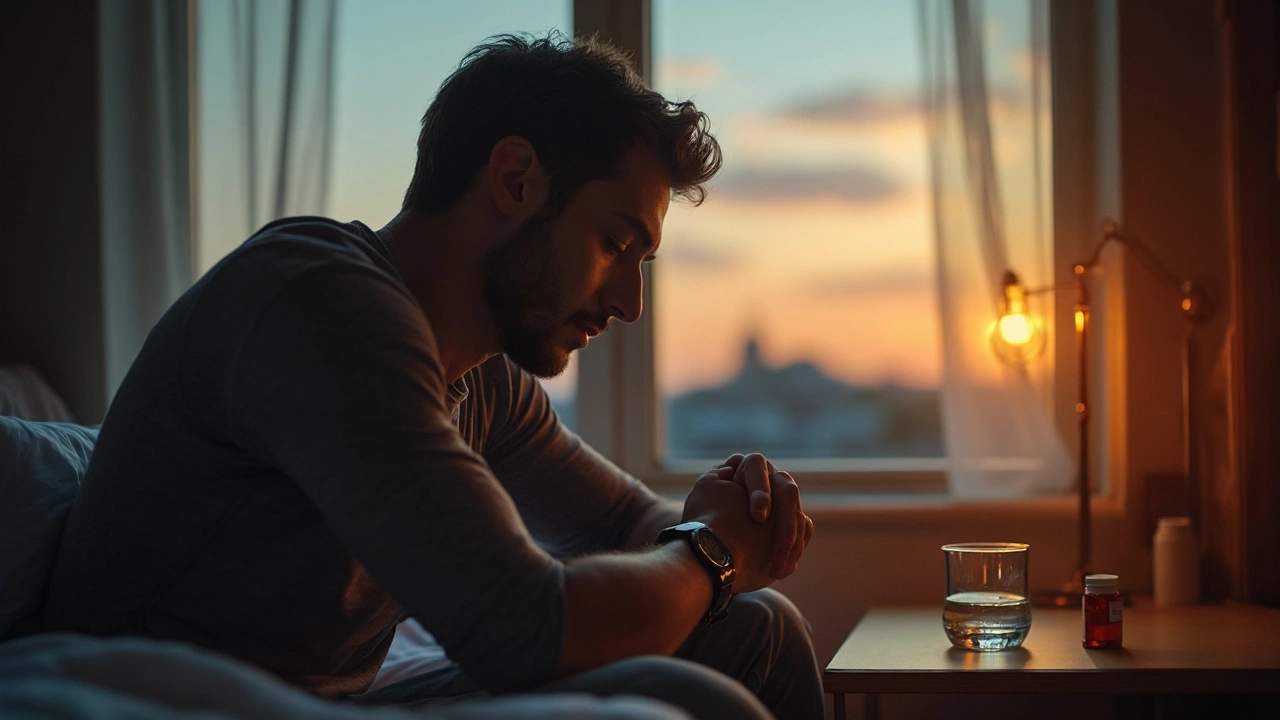Alcohol and Activity: Safe Choices When You Drink and Take Meds
Mixing alcohol with medicine or certain activities can change how you feel and how well a drug works. Sometimes the risk is mild drowsiness. Other times it’s a dangerous drop in blood pressure, a bad reaction, or even a seizure. This page gives straight, usable tips so you can make safer choices when alcohol and medications cross paths.
Quick rules to follow
Read the leaflet or ask your pharmacist. If a label warns “avoid alcohol,” take it seriously. Start slow when you begin a new medication — try no alcohol for the first few days so you can spot side effects. If a drug sedates you (makes you sleepy), don’t drink and drive or operate machinery. When in doubt, skip the drink.
Keep timing in mind. Some interactions need only a small amount of alcohol; others are tied to how long the drug stays in your body. For example, metronidazole (Flagyl) can cause a nasty reaction with alcohol during treatment and for 48–72 hours after stopping. For many sedating drugs, even one drink can magnify drowsiness.
Common meds you’ll see on this site and what to watch for
Antibiotics: Most common antibiotics are okay with moderate alcohol, but metronidazole is a clear exception. Check each antibiotic’s instructions.
Antidepressants and antipsychotics: Drugs like Wellbutrin and many antipsychotics can change mood, alertness, and seizure risk. Alcohol can make side effects worse and interfere with treatment. Avoid drinking until you know how the drug affects you.
Sleeping pills, benzodiazepines and sedatives: Midazolam (Versed), gabapentin (Neurontin), and hydroxyzine increase sedation with alcohol. This combo slows breathing and reaction time — do not mix.
Pain meds and opioids: Never mix alcohol with opioids. The combination can be fatal because it depresses breathing.
Heart and blood pressure meds: Alcohol can lower blood pressure or blunt how these drugs work. With meds like valsartan (Diovan), expect more dizziness and fainting risk if you drink heavily.
Cholesterol and liver-risk drugs: Statins and combo drugs like Vytorin may stress the liver. Heavy alcohol use adds strain and raises the chance of liver problems.
Allergy meds: Older antihistamines (diphenhydramine, hydroxyzine) plus alcohol = big sleepiness. Newer ones like fexofenadine (Allegra) usually cause less drowsiness, but check labels.
Practical tips: keep a list of your meds on your phone, tell your doctor about any drinking, and ask specifically if a drug affects reaction time or the liver. If you plan to exercise, avoid drinking beforehand — alcohol impairs coordination, hydration, and recovery. Small changes prevent big problems.
If you feel extreme drowsiness, fainting, trouble breathing, or a fast heartbeat after drinking with a medication, get medical help right away. Otherwise, use simple caution: read the leaflet, space out drinks from doses when advised, and ask a pro if you’re unsure.
Optimal Schedules for Cialis Alternatives: Best Dosing Timing, Meals, and Lifestyle Tips
Struggling with the timing of your ED medication can easily tank your confidence and your night. This guide spills the real details about meal timing, alcohol, and activity to help you get the most out of Cialis alternatives. If you want to know when to take your meds, what food or drink to dodge, and how activities quietly factor in, you've landed in the right spot. No fluff, just strategic, actionable advice for easier, more effective ED treatment.
Keep Reading
